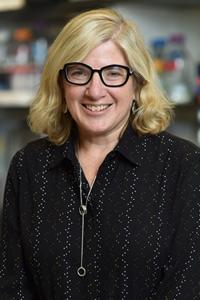Raising Awareness of Skin Cancer and HPV Vaccination in Staten Island
The Herbert Irving Comprehensive Cancer Center’s (HICCC) Community Outreach and Engagement Office (COE) has been awarded a grant to support health education efforts focused on skin cancer and human papillomavirus (HPV) vaccination in Staten Island. The HICCC COE is one of three funding recipients chosen by Health Research, Inc. (HRI) and the New York State Department of Health Bureau of Cancer Prevention and Control (BCPC) to enact evidence-based strategies to prevent and reduce cancer in at-risk communities.
Skin cancer is by far the most commonly diagnosed cancer in the U.S., with melanoma being its deadliest form. The incidence rate for melanoma in Staten Island is substantially higher compared to the rest of New York City. In addition, HPV vaccination rates in Staten Island — at only 27% for adolescents 14 to 17 years old — are lower than all other boroughs in New York City. HPV is known to cause six types of cancer, including more than 90% of cervical and anal cancers.
The grant plans to address skin cancer and HPV cancer prevention in Staten Island by working closely with community and governmental organizations on several initiatives. The HICCC COE, led by Director Mary Beth Terry, PhD, brings together the expertise of scientists, health educators, outreach workers, clinicians, and advocates to offer culturally tailored health education. Skin cancer specialist, dermatologist-oncologist Larisa J. Geskin, MD; pediatricians Melissa S. Stockwell, MD, MPH, of the HICCC, and Ashley B. Stephens, MD; and Ginny Mantello, MD, COE advisory board member, will act as team experts to help develop accurate and effective outreach campaigns. Dr. Geskin works with New York State Department of Health and New York State Cancer Consortium as a chair of its Skin Cancer Action Team, while Dr. Stockwell has substantial experience conducting text messaging campaigns to increase HPV vaccination rates in the Washington Heights area.
“This project builds off an existing partnership we had with Staten Island over the last few years. We had a high school program at Staten Island focusing on environmental risks of cancer,” says Dr. Terry. “This is an exciting project for greater policy change and awareness of skin cancer prevention and HPV vaccination.”
Community education initiatives include informative workshops for parents and young children about the importance of sun-safe practices, given that roughly 50% of total lifetime UV exposure occurs before the age of 18. In addition, presentations at middle and high school parent-teacher associations will focus on the importance of HPV vaccination to prevent cancer. Strategies for community mobilization involve the development of a teen health ambassador program to disseminate educational messaging and materials among their peers related to sun safety and HPV vaccination.
Key partners include Richmond University Medical Center, Children’s Aid Society of Staten Island, and United Activities Unlimited that will support the proposed initiatives targeting children, parents, and healthcare providers. Funding for the award will be valued up to $675,000 over a three-year period, running from April 1, 2021 to March 31, 2024.


